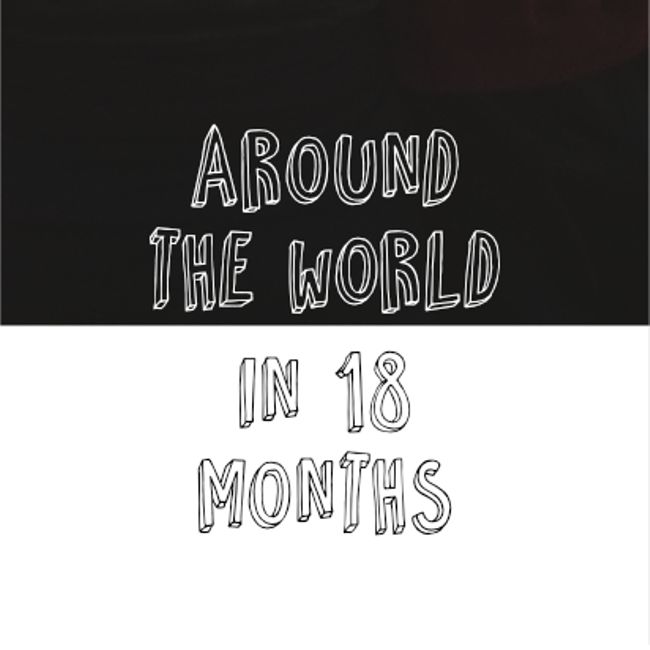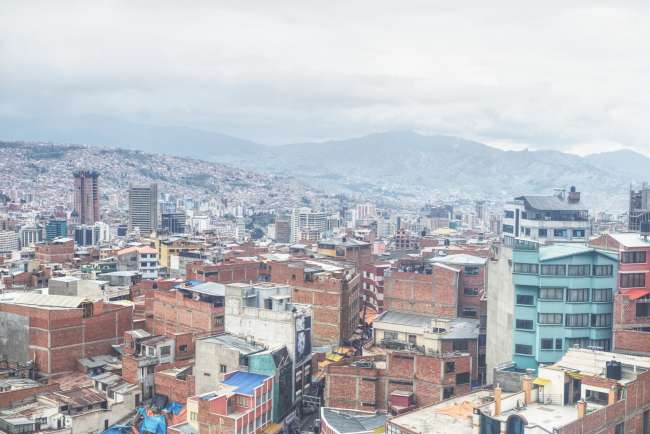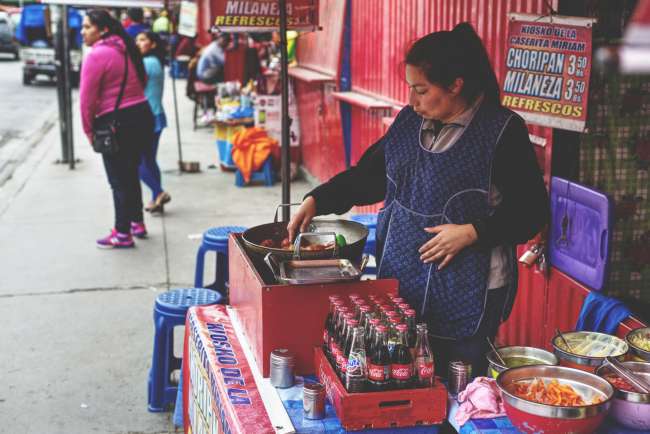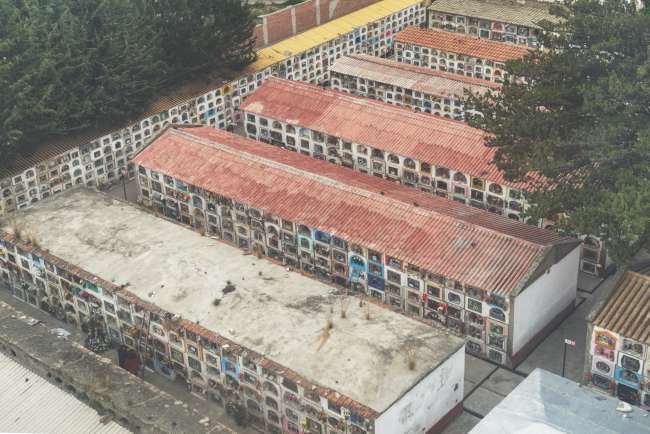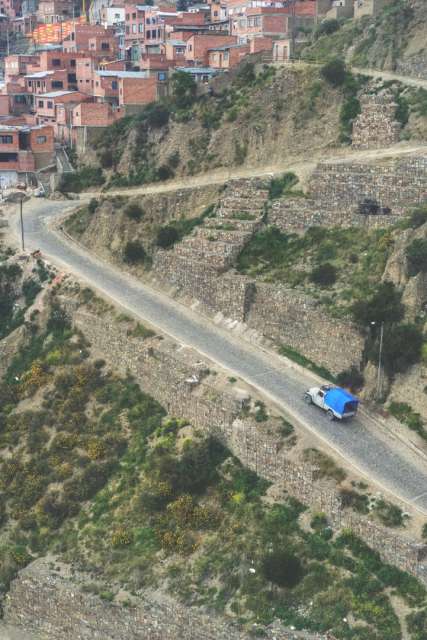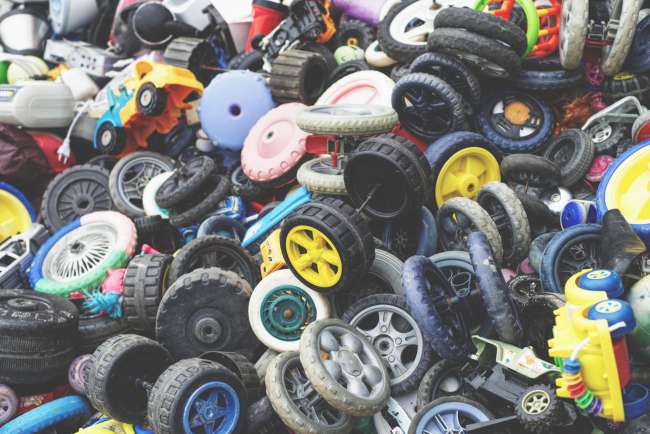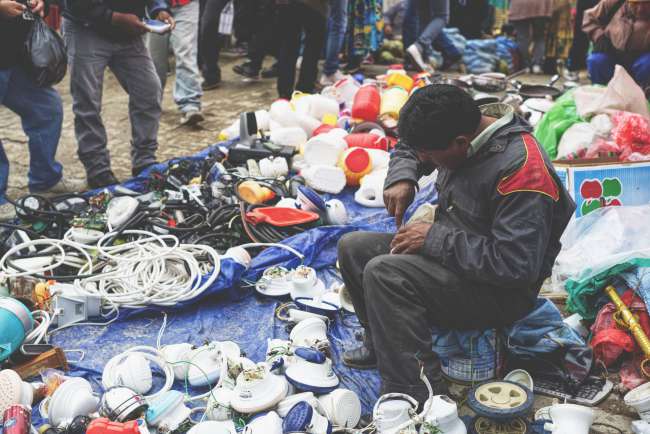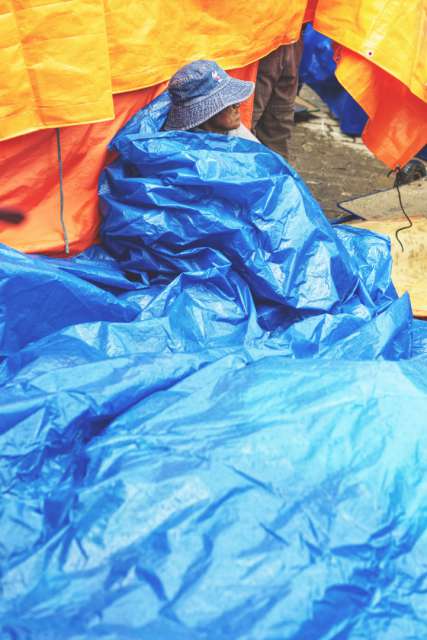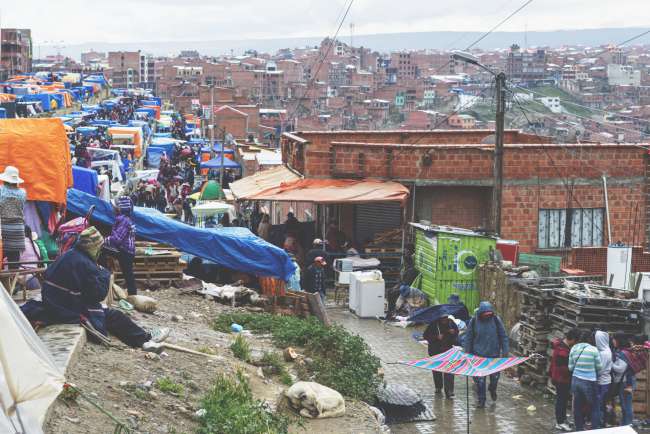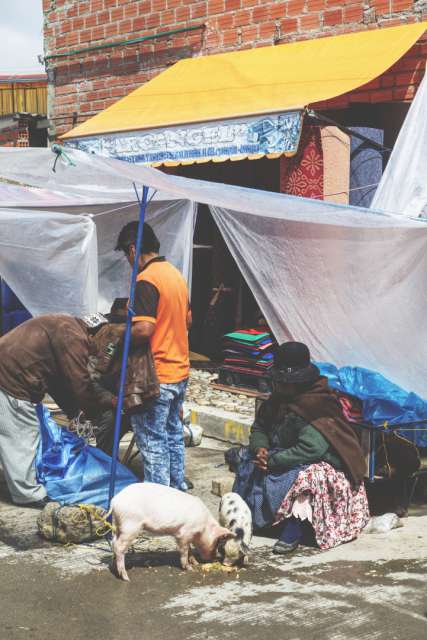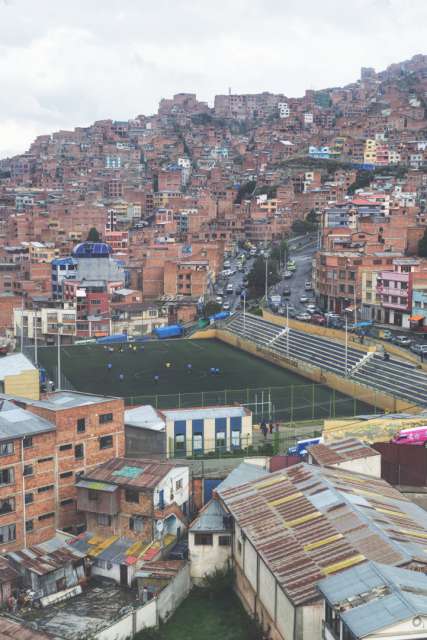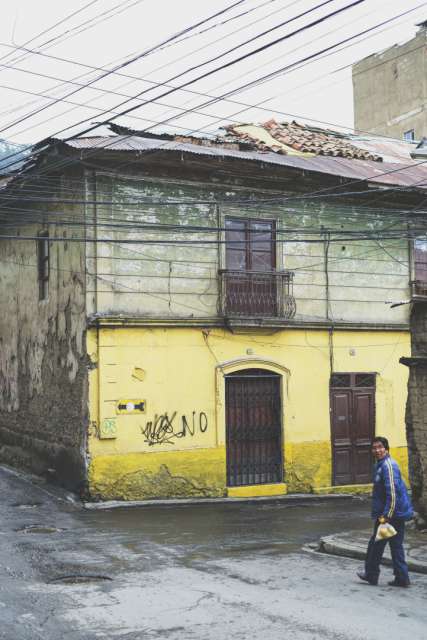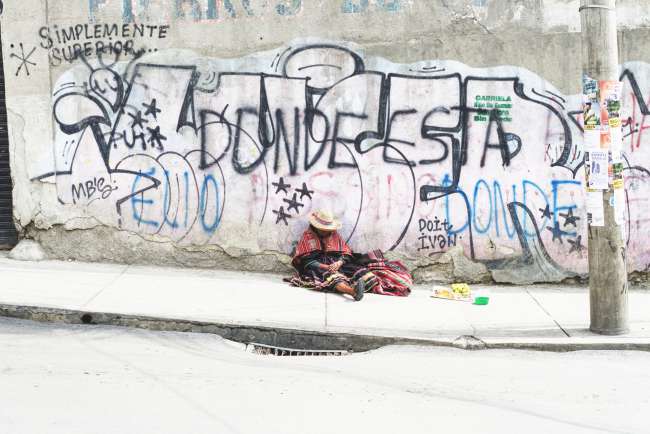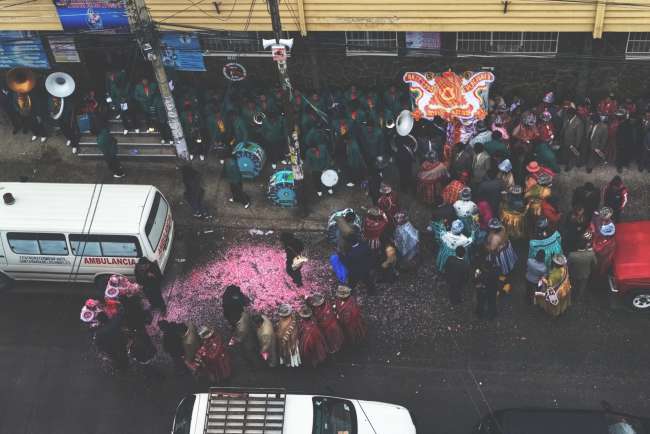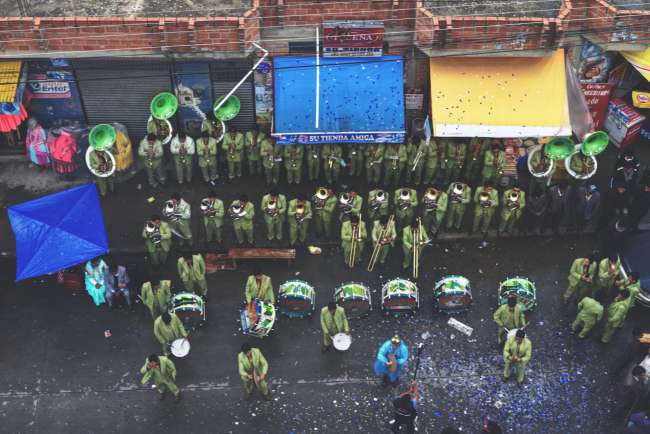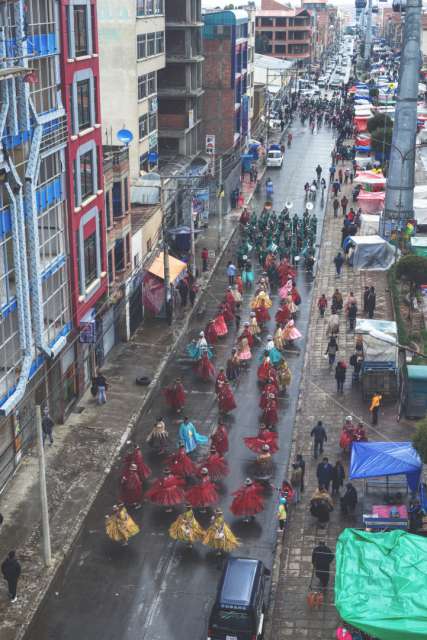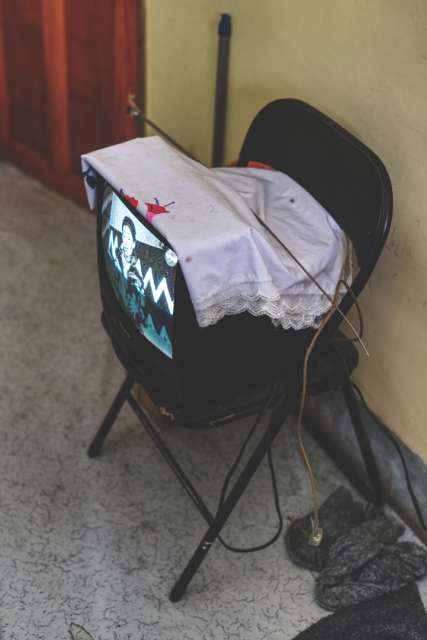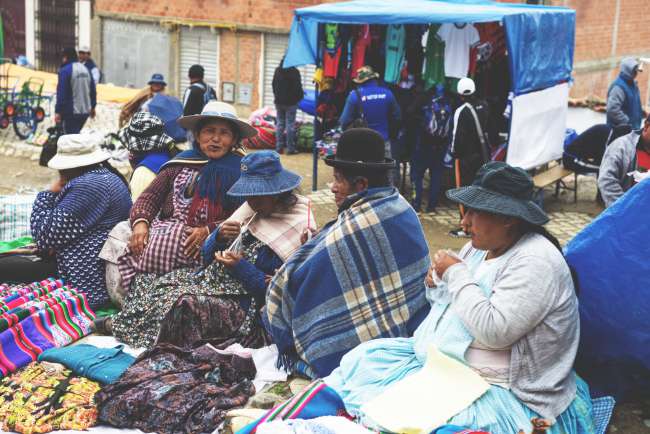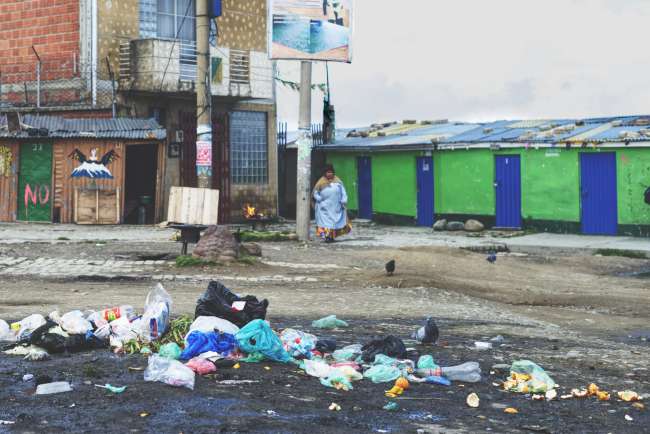Tag 108: La Paz
ที่ตีพิมพ์: 18.05.2017
สมัครรับจดหมายข่าว
It's 7:45 in the morning. Tobias, Sabrina, and I are sitting sleepily with our packed backpacks at the bus terminal in La Paz. In 15 minutes, a bus is supposed to take us to Copacabana by Lake Titicaca.
Four days ago, after a ten-hour bus ride, we arrived in La Paz, the highest capital city in the world. The first impression of the city was shockingly ugly, but the hostel was nice. We've spent a lot of time here in the last few days, playing table tennis and billiards. Apart from the many tours that take place outside the city, La Paz doesn't have much to offer. It's a sea of unfinished ugly building structures and plenty of markets. Life takes place here on the streets, and you won't find a well-stocked supermarket. There are tourist markets with heaps of colorful souvenirs, witch markets with herbs and dead llama fetuses hanging from the ceiling, clothing, food, and utensil markets. The highlight of the market life is the Sunday market in El Alto, the largest market in the world. For three Bolivianos, we took the gondola to the top of the city and the entrance to the giant market after waiting in line for 45 minutes. The market is actually not very touristy. You can find everything here. We strolled through the market for a few hours, watched the extraordinary spectacle, ate chicken, vegetables, and noodles with our hands in a small tent sitting on beer crates, and then sifted through huge piles of clothes.
We're on our way. We quickly pay for the obligatory ticket to use the terminal and board the bus. After a few hours, we arrive in the relatively small and dusty Copacabana. We buy tickets for the boat to get to the 'Isla del Sol' and, after a nice chat with the seller, we secure our accommodation on the island. The journey to the island takes time. Like chickens on a perch, we all sit next to each other on the roof of the boat, the sun aggressively shining, the wind whispering coolly, and the view is incredible. After an hour and a half, we finally arrive in the south of the island. As soon as we get off the boat, the tourist frenzy starts again. Before we even have a chance to orient ourselves, we're courted by hostel owners, donkey renters, and children selling souvenirs. Luckily, we quickly find our contact person. We climb the steep Inca steps, just like everyone else here, passing by colorful souvenir stands, children eager to sell, donkeys, sheep, and annoyed locals. The faces of the Bolivians reflect mixed feelings. On one hand, they need the tourists to earn money, but on the other hand, they detest the arrogant self-assurance with which the tourists stroll around here. Our hostel is okay. The view is beautiful, the rooms are bare, and the bathroom is cold. We take our backpacks to the room and set off to explore. The air is thin, and we move slowly, feeling cold. But the climb is worth it. We walk along the ridge of the island until sunset, enjoying the view and admiring the simplicity with which the people here live in close cooperation with their domestic animals. For dinner, we look for a restaurant. The menu is always the same: soup, usually quinoa, followed by rice, two potatoes, a bit of vegetables, and chicken. Satisfied, we stumble back to the hostel in the darkness. We dress warmly, sit on the terrace for a few minutes to admire the stars and reflect on the day, and then get into the freezing cold bed.
สมัครรับจดหมายข่าว
คำตอบ
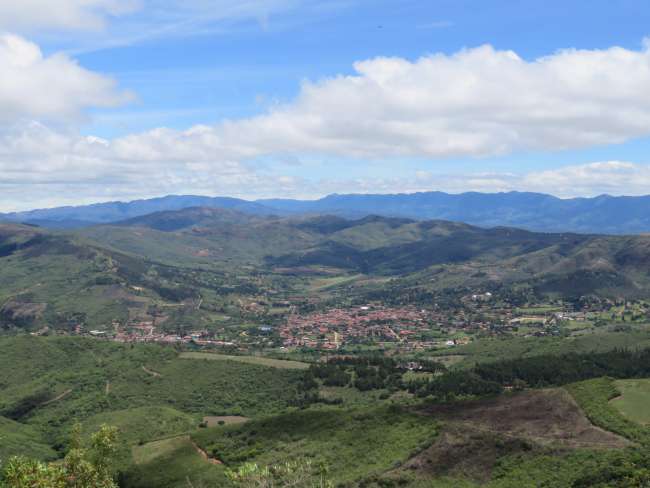
รายงานการเดินทาง โบลิเวีย

